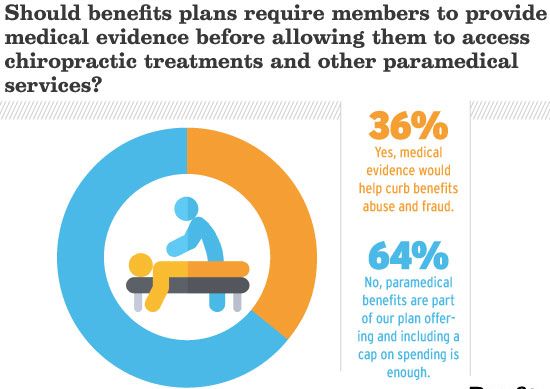With the federal government's new employment insurance parental sharing benefit taking effect in a couple of weeks, employers are being advised to prepare for the changes.
"Employers will need to be ready to adapt to a new reality should new parents collectively decide to avail themselves of the new shared parental leave EI benefits," says Adrian Jakibchuk, partner in the employment and labour group at Cassels Brock & Blackwell LLP.
Read: A look at extended parental benefits one year on
"This includes parental leave requests becoming more common, particularly among new fathers and non-birth mothers. New-birth mothers who shared parental leave with a spouse and took less than the maximum individual entitlement may now take a lengthier leave knowing it won't impact their spouse's right to also take at least five weeks of EI parental leave."
On March 17, soon-to-be parents will be eligible to receive extra weeks of parental benefits in an effort to encourage more parents to share the work of raising their children. In 2016-17, women represented 85 per cent of all parental benefits claims, according to Employment and Social Development Canada.
The benefit, which was introduced in the government's 2018 budget, will be available to parents, including adoptive or same-sex parents, for a child born or placed for the purpose of adoption on or after March 17, as long as they're eligible for, and share, their EI parental benefits.
When parents agree to share, they'll benefit from either five additional weeks of parental benefits when choosing the standard option or eight additional weeks for the extended, 18-month option. Employment and Social Development Canada expects up to 97,000 Canadian parents will claim the parental sharing benefit per year.
Corresponding changes will be made to Canada's labour code to ensure federally regulated, private sector employees have the right to take leave while receiving the new parental sharing benefits without fear of losing their job.
Read: Budget offers details on new five-week leave for second parent
Figures suggest about one in 10 Canadian fathers who are eligible for EI parental leave benefits take them, says Jakibchuk, noting this number should rise once the legislation takes effect, as it did when Quebec introduced similar benefits. But the big unknown is how pronounced the increase will be, he adds.
"If new fathers and non-birth mothers take full advantage of the extended parental leave benefits, employers will have to regularly grapple with two different types of employee requests — those from parents looking to take their full parental leave entitlements and those from parents looking to take short parental leaves of as little as five to eight weeks (the length of the EI parental sharing benefit), while their spouses claim the greater entitlement," he says.
Jakibchuk believes the latter scenario will become more common. "While employers addressing the former scenario often look to hire replacement employees on fixed-term contracts as the temporary solution, it's unlikely to be as viable an option in the case of a short, five-week parental leave."
The new benefit also requires both parents to choose the same parental benefits option, and they can be accessed at the same time or separately. Once the parental benefits are being paid on a claim, parents can't change the duration option, but they can change how they share the weeks of benefits.
Read: How to bridge the parental leave divide
The new EI parental sharing benefit is the topic of this week's online poll. As the new legislation comes in, are employers prepared for its affect on the workplace? Have your say in our online poll here.
The previous poll asked whether benefits plans should require members to provide medical evidence before allowing them to access chiropractic treatments and other paramedical benefits. About a third (36 per cent) of respondents said yes, medical evidence would help curb benefits abuse and fraud, while 64 per cent said no, paramedical benefits are a part of our plan and including a cap on spending is enough.

Originally published by Benefits Canada.
The content of this article is intended to provide a general guide to the subject matter. Specialist advice should be sought about your specific circumstances.

